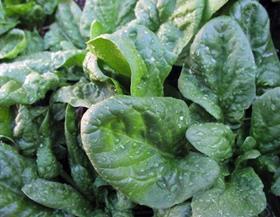
Australia’s peak body for the vegetable and potato industries, Ausveg, has hit out at recommendations to raise the cost of the country’s export certification services.
Under its Cost Recovery Implementation Statement Plant Exports Certification 2019-20 (CRIS), the Australian Department of Agriculture outlined its proposal to increase the fees and levies associated with attaining export certification. The proposed changes would lift the cost of compliance by over 40 per cent, an expense that would ultimately be passed onto growers.
Ausveg national manager – public affairs, Tyson Cattle, labelled the proposed changes “unmanageable” for the Australian vegetable industry.
“The difficult conditions faced by the horticulture industry currently, including the worst drought in decades, and bushfires affecting production regions and freight of produce to market, make these cost increases especially hard for growers to absorb and remain competitive,” Cattle explained.
“Ausveg understands the need for export certification requirements, as well as the need to fund the biosecurity framework to protect Australia’s borders. Ausveg also recognises the need for government to recover the costs of delivering these services – as long as they can be provided efficiently and charged at competitive rates.”
In making his assertion, Cattle highlighted that the Australian Department of Agriculture recovers 48 per cent of its total A$847m budget from Australian farmers and exporters. He said this was “excessive and inconsistent” with other federal departments in Australia and equivalent departments internationally.
“AusTrade recovers 10 per cent of its A$245m budget; the Australian Department of Industry, Innovation & Science recovers 15 per cent of a total A$508m; and the New Zealand Ministry of Primary Industries recovers only 29 per cent of its total NZ$715m budget,” Cattle explained.
“Industry is calling on the Commonwealth Government budget allocation to reflect the Prime Minister’s stated objective of agriculture becoming a A$100m industry by 2030, and ensure that sufficient funding is provided to support the policy development for the agriculture sector.”
Cattle’s comments come on the back of similar concerns tabled by the Australian Fresh Produce Alliance (AFPA)following the appointment of David Littleproud as the Australian minister for agriculture last week.



